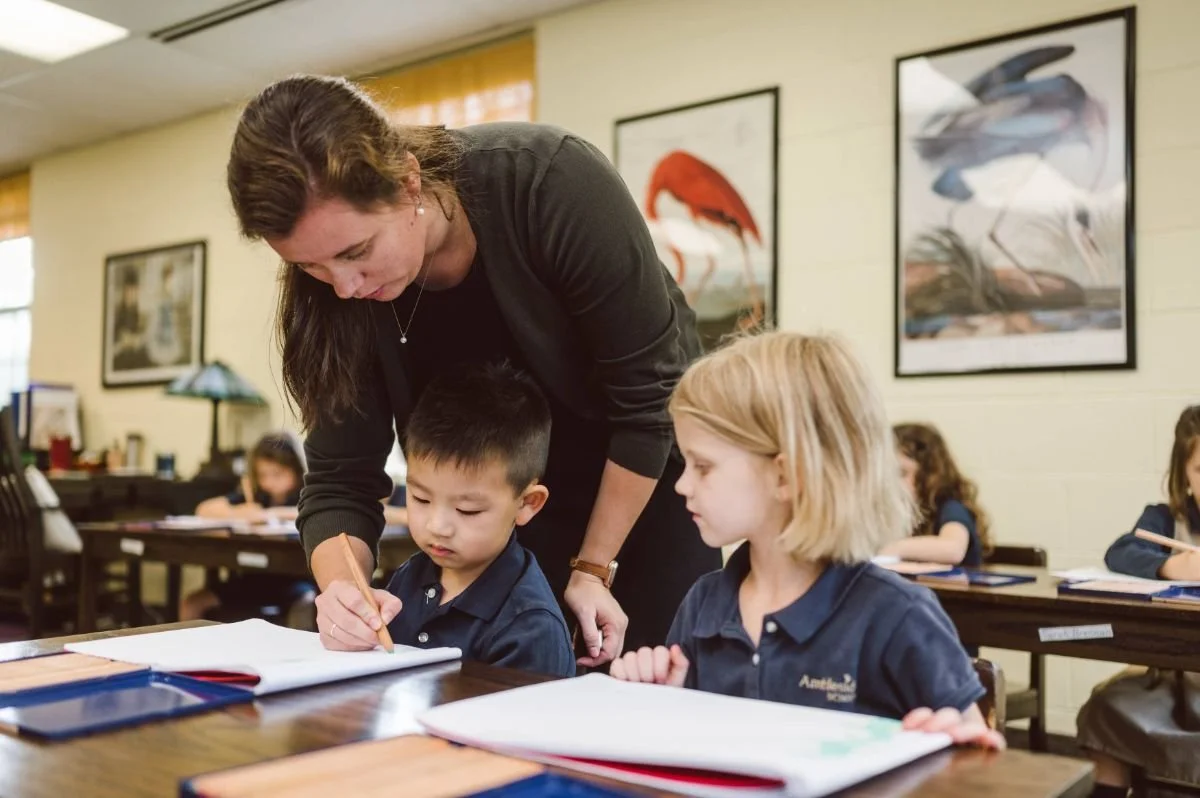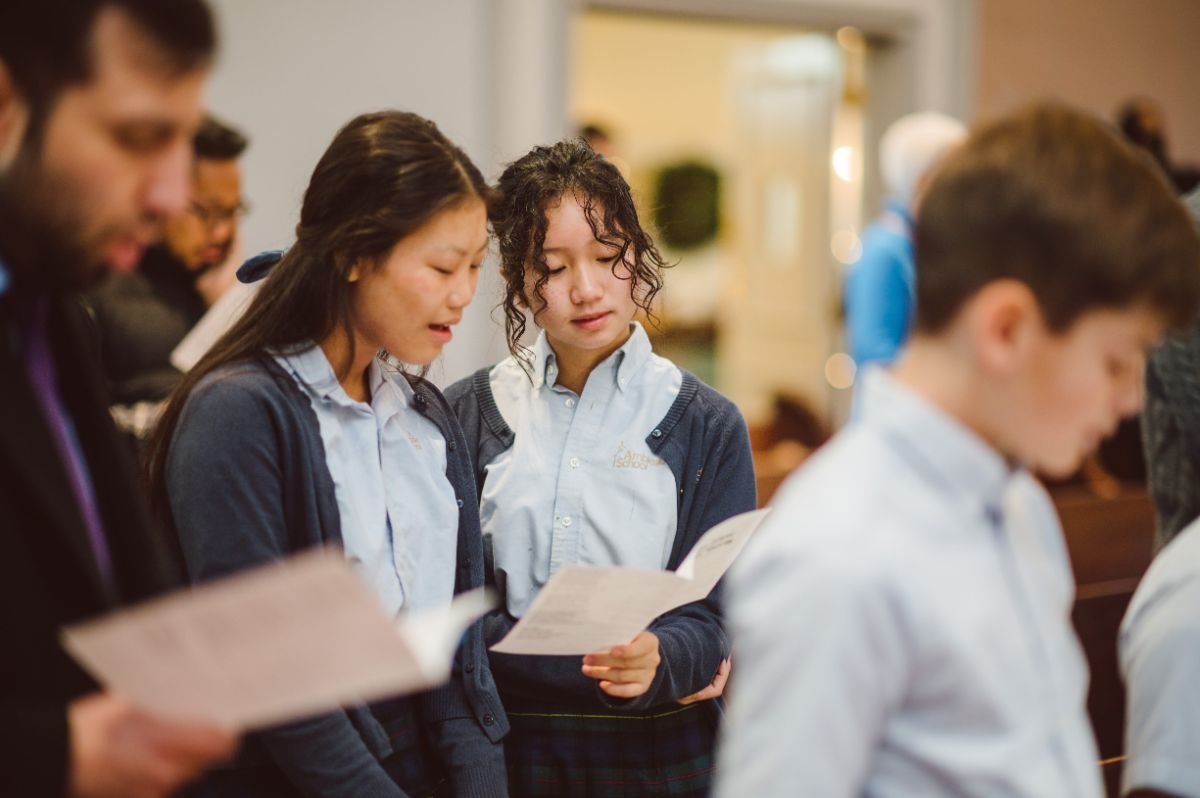ABOUT • PHILOSOPHY
Our Philosophy
Charlotte Mason Fundamentals
The ideas of Charlotte Mason (1842-1923), an English author, philosopher and educator, are the basis of Ambleside School’s method of education. This British Educator founded a teacher training college in Ambleside, England, inspired the creation of the Parents’ National Education Union, and shaped the work of education in hundreds of primary and secondary schools worldwide. Her ideas are set forth extensively in six volumes—Home Education, Parents and Children, School Education, Ourselves, Formation of Character, and A Philosophy of Education.
The Priority of the Relational Life
Students live in relationship with God, self, others, the world of ideas, and all of creation. Teachers cultivate these relationships through a broad and challenging curriculum, and all members of the school community are expected to relate according to the principles of Jesus Christ. Ambleside School adheres to the principles God has established for human relationships and recognizes both the authority and the responsibility given to leaders.
The Discipline of Habit
At Ambleside School, we consider the process of student work as important as the end product. Rather than developing persons who are able to study well for the next exam, we are interested in helping students develop a life of study. The teacher is to ask such questions as: Did she pay attention? Did he put forth effort? And was she thorough? We believe school is a place to develop habits that will serve students throughout their lives.
While recognizing that students have various levels of gifting, it is the expectation of Ambleside administration and faculty that every student will develop the habits necessary for producing work of the highest quality, and will grow into the fullness of their God-given potential.
“At Ambleside School, students are not identified or limited by their strengths or weaknesses.”
The Infinite Dignity and Potential of Each Child
Because students are born in God’s image, they are born with a great potential for a fruitful life full of varied interests and relationships. At Ambleside School, students are not identified or limited by their strengths or weaknesses. All students participate in a broad and rigorous curriculum where they calculate, solve, attend, explore, ponder, recite, paint and sing. The expectation that prevails within the school is that all students will learn and grow to their full potential as persons and attain their vast inheritance in Christ.
A Non-Competitive, Stimulating Atmosphere
Administration, faculty and students are held to the highest standard in their way of relating to one another. In an atmosphere of sincerity and truth, students are free to learn for the pleasure of knowing. Students do not compete with their peers for rank, grades or prizes. Learning is the focus, not besting a classmate. Great ideas, great works of literature, great works of art, the glory of the created world, and the common experiences of life are placed before the students to observe, explore and understand.
Education as Vital, Dynamic, Living
Real learning occurs when the learner wonders, asks why and how. At Ambleside School the teachers cultivate an atmosphere that is rich in great ideas and stimulates thought and dialogue. The teacher places the very best books before her students, books rich in content and ideas, books that engage the mind and imagination. Through the use of these “living books” students interact with authors, scientists, mathematicians, philosophers, historians, artists, poets, and explorers. Learn more about a “living education” here.
“To grow, a student must be strenuously engaged in the work of learning.”
“Real learning occurs when the learner wonders, asks why and how.”
The Importance of Delight and of Struggle
Students will naturally delight in the feast of great ideas set before them. They will savor them and grow in the ability to enjoy and celebrate their relations with persons, ideas, and creation. But they will also at times struggle. We consider the struggle to be as essential to the learning process as the delight. Students must learn to labor with problems not yet grasped, to remain on task when uncertain of the outcome, to struggle to completion when mind and hand are tired, to experience the rewards and negative consequences of their actions. There will be no growth in character without the struggle.
Foremost among the enemies of the delight and the struggle necessary for the cultivation of a learner are entertainment and indulgence. In the classroom, entertainment and indulgence both encourage passivity. To grow, a student must be strenuously engaged in the work of learning.
For more information about Charlotte Mason and Ambleside Schools, visit the website of Ambleside Schools International.




